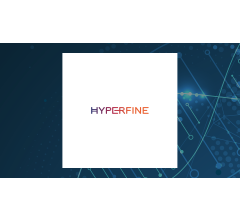The Dark Side of Data Brokerage. The Truth About Identity, Insecurity… | by Dana Rivkind | Jun, 2024

In the digital age, the concept of privacy has become increasingly nebulous, with personal data being a hot commodity. The story of Jane, whose life was upended due to hacked personal data being misused by data brokers, sheds light on a troubling aspect of our digital society — the unregulated and often nefarious world of data brokerage.
Data brokers are entities that collect, analyze, and sell personal information about consumers. This information ranges from basic demographics to more sensitive data like shopping habits, social media activity, and even location tracking. The global data brokerage market, growing at an alarming rate, is expected to reach billions of dollars in the next few years, driven by industries like marketing, finance, and healthcare.
Jane’s predicament highlights a critical issue: the accuracy and integrity of data. With her accounts hacked, the data collected and traded about her was not only false but also damaging. This misinformation led to a drastic change in her life, including her inability to secure employment.
The scariest part?
This scenario is not uncommon.
Reports indicate that a significant portion of the data circulating in these markets is either outdated, taken out of context, or outright false. Worse still, there’s evidence that criminals are manipulating data sets, creating a market where fake information is sold as legitimate intelligence.
Jane’s story is a reminder of the often overlooked dangers in the data brokerage industry — the accuracy and integrity of the information being traded. After her accounts were compromised, the data collected and sold about her was not only incorrect but also harmful. This distorted information had severe repercussions on her life, notably her sudden unemployability. Alarmingly, such scenarios are becoming increasingly commonplace.
The situation is further complicated by the deliberate manipulation of data. There are growing concerns and evidence suggesting that criminals are actively distorting information before it enters the data brokerage ecosystem. This practice creates a shadow market wherein fabricated information is traded as if it were legitimate intelligence. The motivation behind such manipulations varies — from financial gain to character assassination — but the impact is uniformly damaging.
What makes this issue particularly insidious is the invisibility of these manipulations to the average consumer. People like Jane have little to no visibility into what data is being collected, who is collecting it, and how it’s being altered. They are often unaware that their data is being traded in these shadow markets until they face real-world consequences, like job rejections or credit denials.
The integrity issue in data brokerage not only questions privacy and consent but also casts a shadow over the reliability of our digital information ecosystem. This challenge underscores the need for a new infrastructure, one that emphasizes integrated data ownership and provides comprehensive auditing capabilities. Such an infrastructure would mandate stringent regulations for data accuracy and transparency. It should also empower individuals with clear mechanisms to manage, audit, and correct their personal data. This approach is key to building a data ecosystem that operates with integrity, transparency, and respect for individual data sovereignty.
The criminal data broker market represents a profound threat not only to the sovereignty and privacy of individuals but also poses a critical risk to National Security, undermining the very foundations of our society’s safety and integrity.
One of the most significant impacts of this unregulated data trade is on employment. Companies are increasingly relying on AI-driven HR screening systems, which use data from these brokers to make hiring decisions. The market for such AI systems is expanding, with millions of dollars being invested annually.
The widespread reliance on automated systems and AI for decision-making exacerbates the problem. These systems, often employed in areas like HR and credit scoring, base their decisions on the data provided to them. If this data is inaccurate or manipulated, the decisions made by these systems are inherently flawed. The victims of these inaccuracies, like Jane, find themselves in a Kafkaesque scenario, struggling to prove the falsehood of data about them. With AI’s lack of transparency and the difficulty in tracing data sources, correcting these mistakes becomes a Herculean task.
The infiltration of inaccurate and manipulated data into the corporate hiring process is an alarming and insidious development in the world of employment. Companies, in their pursuit of efficiency and precision, are increasingly turning to AI-driven HR screening systems. These systems, often seen as the epitome of unbiased decision-making, are fundamentally flawed due to their reliance on data sourced from data brokers. This reliance has unwittingly opened a Pandora’s box of deceptive practices that threaten the very integrity of the corporate hiring process.
Imagine a scenario where an AI system, operating on corrupted data, inadvertently flags a well-qualified, honest candidate as a risk, while giving a clean bill to someone with a history of financial fraud, money laundering, or other criminal activities. Such a scenario is not just theoretical but is increasingly becoming a reality. Companies could be unknowingly hiring individuals who are the very antithesis of what they seek — extortionists, exploiters, thieves. These individuals, cloaked in a veil of falsified data, can infiltrate organizations, posing significant legal, financial, and reputational risks.
The central issue lies in the deceptive nature of the data being fed into these AI systems. Companies invest millions annually in sophisticated AI technologies, under the belief that they are accessing high-quality, reliable data. However, what if this data is a carefully constructed web of lies? In a disturbing twist, the very systems designed to filter out undesirable candidates could be doing the exact opposite.
On the flip side, the real victims of this deceptive practice are individuals like Jane, whose professional reputations are tarnished by false data. These individuals, often with no knowledge of how or why their data has been manipulated, find themselves inexplicably locked out of job opportunities. For them, correcting this misinformation is a daunting, if not impossible, task, given the opaque nature of AI decision-making and the convoluted web of data brokerage.
This situation has created a trust crisis in the corporate world. Companies, in their reliance on data brokers and AI systems, are making critical decisions based on false information. This undermines the very foundation of their hiring practices and opens up companies to significant risks — from legal liabilities to hiring individuals who may pose a threat to the organization.
The data brokerage industry, a burgeoning giant in the global market, operates largely unchecked due to regulatory gaps and lack of international standardization. While laws like the General Data Protection Regulation (GDPR) in Europe and the California Consumer Privacy Act (CCPA) in the United States have initiated crucial steps towards data protection and privacy, they fall short in several ways. These regulations are often limited by regional boundaries and do not universally address the depth and complexity of data inaccuracies and manipulations. Furthermore, they struggle to keep pace with the rapid advancements in technology and the evolving tactics of criminal entities.
A pressing need exists for a comprehensive and universally applicable regulatory framework. Such a framework should not only encompass data accuracy, consent, and the right to be forgotten, but also tackle issues like data ownership, audit trails, and the right to rectification. This framework must be agile enough to adapt to new technologies and methods of data collection and processing.
Relying solely on regulations is not sufficient. The dynamic nature of technology and the ingenuity of criminal enterprises necessitate innovative technological solutions. Not only is there’s a lack of awareness among individuals about the extent of data collection and their rights, there is an urgent need for innovation and data ownership rights. Educational initiatives and transparency from companies can empower consumers to take control of their data.
The implementation of blockchain technology for data management. Blockchain’s inherent features of transparency, immutability, and decentralized control could revolutionize how personal data is stored, accessed, and shared. By using a blockchain-based system, individuals can have real-time insights into who is accessing their data and for what purpose, enhancing control and security.
Another key area is the development of personal data vaults — secure, encrypted spaces where individuals can store their personal data. These vaults would allow individuals to grant or revoke access to their data, track its usage, and even monetize their information if they choose to. By placing the ownership of data back in the hands of individuals, these vaults could significantly reduce the unchecked exploitation of personal information.
To complement these technological innovations and regulatory reforms, there must be a concerted effort to raise public awareness about data rights and security. Educational initiatives can play a crucial role in empowering individuals to take control of their data. These initiatives should focus on informing the public about their data rights, how to exercise these rights, and how to protect their data from misuse.
Companies must also be encouraged, or even mandated, to be transparent about their data collection and usage practices. This transparency is crucial in building trust and ensuring that consumers are aware of and can consent to how their data is being used.
The implications of this issue are profound and far-reaching. It’s a clarion call for companies to reevaluate their reliance on external data sources for critical decision-making processes. There is an urgent need for a more cautious and discerning approach to data, one that acknowledges the potential pitfalls of unverified information.
The tale of Jane is a cautionary one, highlighting the need for urgent reforms in the data brokerage industry. As we advance technologically, it’s imperative that ethical considerations and individual rights are not left behind. Governments, corporations, and individuals must collaborate to create a digital ecosystem that respects privacy and promotes accuracy in data usage. Only then can we prevent the digital age from turning into an era of misinformation and identity crises.
The impact of manipulated and inaccurate data on HR and employment is a stark reminder of the dangers lurking in the digital shadows. Society, and particularly the corporate world, needs to wake up to the reality of these deceptive practices. The unchecked inaccuracies and manipulations in data brokerage pose a significant threat to individual rights and societal trust in digital systems. Addressing these challenges is critical to ensuring that the data-driven world is equitable, fair, and transparent.
Tackling the challenges posed by the data brokerage industry requires a multifaceted approach. It necessitates a combination of comprehensive global regulation, technological innovation, auditing mechanisms, and public education. There must be a collective push towards greater integrity and transparency in data usage, with a renewed focus on verifying and validating information before it informs critical decisions. Only then can we hope to protect not just companies, but also the countless innocent individuals who fall prey to the dark underbelly of the data brokerage industry.
By implementing these strategies, we can move towards a digital ecosystem where personal data is protected, accurately represented, and controlled by the individuals it belongs to. This is not just a matter of privacy, but a fundamental issue of digital rights and personal autonomy in the 21st century.





